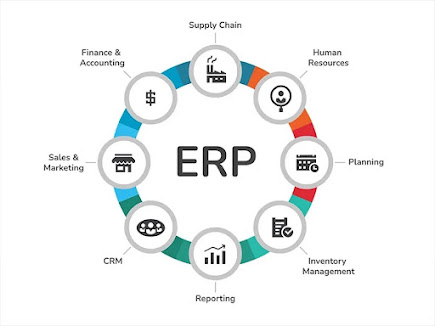ERP Accounting and Finance: Understanding the Basics and Answering Common FAQs
Enterprise Resource Planning (ERP) is a comprehensive business management software that allows organizations to streamline their processes and optimize their resources. It integrates various business functions such as finance, accounting, procurement, human resources, and more. In this blog post, we will focus on the accounting and finance aspects of ERP systems and answer some common FAQs related to these functions.
Accounting and Finance in ERP Systems
ERP systems offer several features that help organizations manage their financial and accounting operations more efficiently. Here are some of the key features:
General Ledger: The general ledger is the central repository for all financial transactions. It provides a complete record of all financial transactions and enables organizations to track their financial performance in real-time.
Accounts Payable: The accounts payable module allows organizations to manage their vendor invoices and payments. It provides a centralized platform for invoice processing, purchase order matching, and payment processing.
Accounts Receivable: The accounts receivable module helps organizations manage their customer invoices and payments. It allows businesses to create and send invoices, track payments, and manage customer accounts.
Cash Management: The cash management module helps organizations manage their cash flow. It provides tools for cash forecasting, bank reconciliation, and cash positioning.
Fixed Assets: The fixed assets module helps organizations manage their fixed assets such as property, plant, and equipment. It provides tools for asset tracking, depreciation, and maintenance.
FAQs on ERP Accounting and Finance
What are the benefits of using an ERP system for accounting and finance?
ERP systems offer several benefits for accounting and finance, such as:
Improved accuracy and efficiency in financial reporting
Faster and more accurate financial closes
Streamlined accounts payable and accounts receivable processes
Improved cash management and forecasting
Increased visibility into financial performance and key metrics
Enhanced compliance with regulatory requirements
Can an ERP system handle multiple currencies and languages?
Yes, most ERP systems are designed to handle multiple currencies and languages. This is particularly important for organizations that operate in multiple countries and need to manage their financial operations in different currencies.
Is it possible to customize an ERP system to meet specific accounting and finance requirements?
Yes, most ERP systems offer customization options that allow organizations to tailor the software to their specific needs. This can include customizing financial reports, creating custom workflows, and integrating with other accounting and finance applications.
How secure are ERP systems for financial data?
ERP systems are generally very secure and offer robust security features such as data encryption, user access controls, and audit trails. However, organizations need to ensure that they follow best practices for data security, such as regularly updating passwords, restricting user access, and monitoring system activity.
How much does an ERP system for accounting and finance cost?
The cost of an ERP system for accounting and finance varies depending on the size of the organization, the complexity of the software, and the level of customization required. Generally, ERP systems can range from a few thousand dollars to hundreds of thousands of dollars.
Conclusion
ERP systems offer several benefits for organizations looking to streamline their accounting and finance operations. By providing a centralized platform for financial management, ERP systems enable organizations to improve efficiency, accuracy, and compliance. In Kuwait, where many businesses are looking to optimize their operations and improve their financial performance, ERP systems can be a valuable tool for success. By understanding the basics of ERP accounting and finance and answering common FAQs, organizations can make informed decisions about whether an ERP system is right for their needs.



Comments
Post a Comment